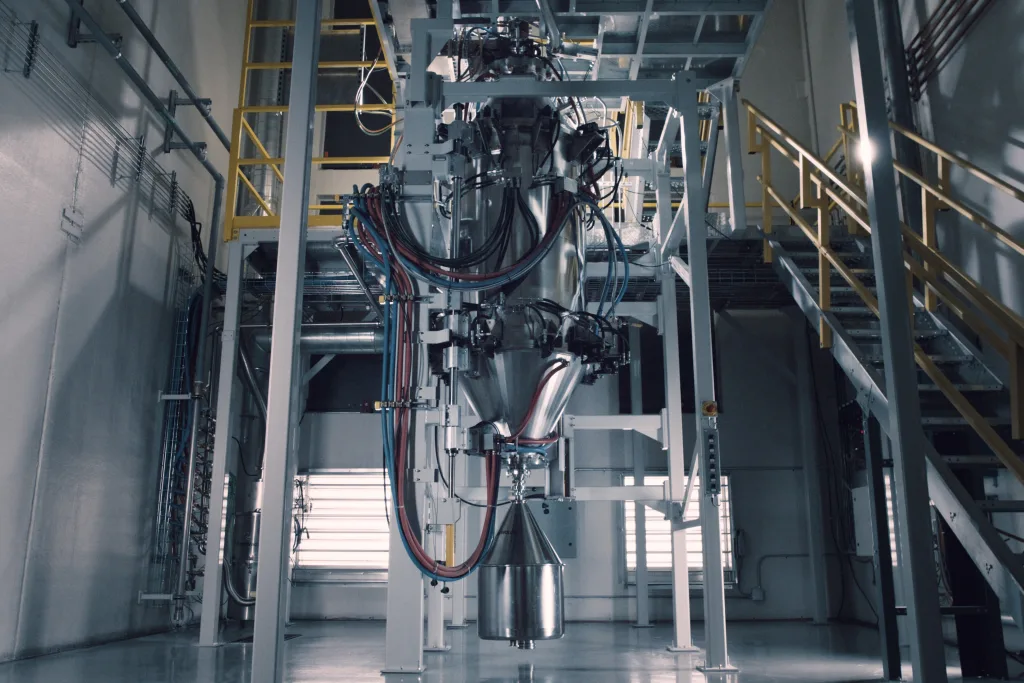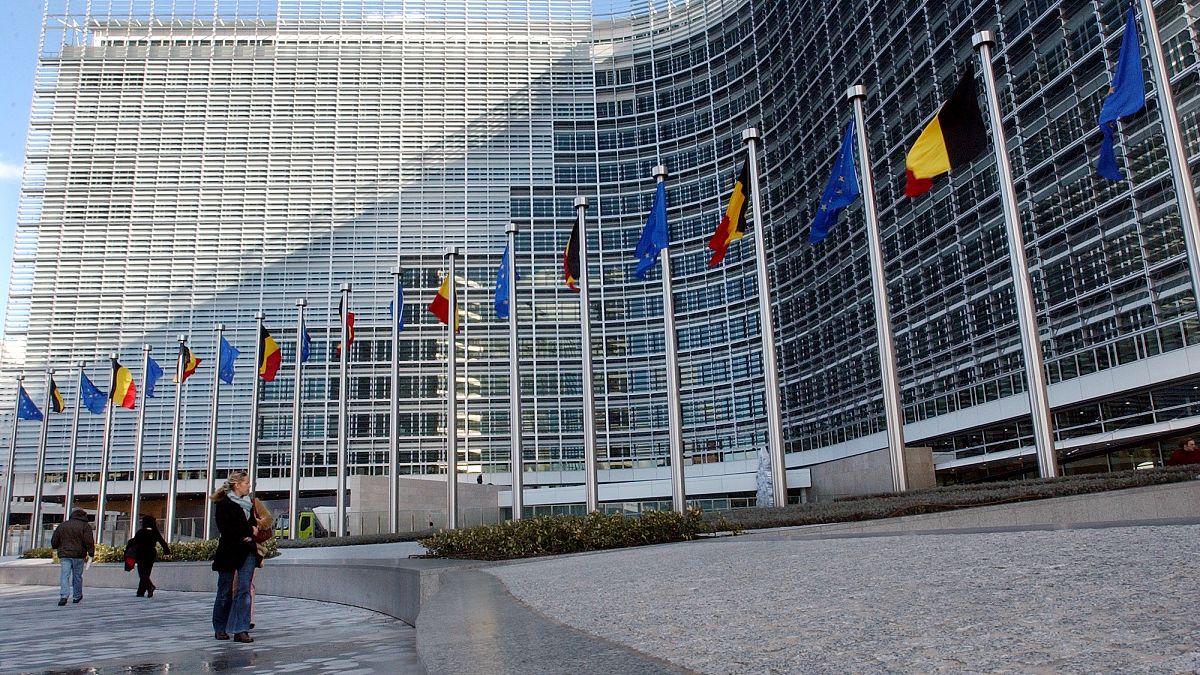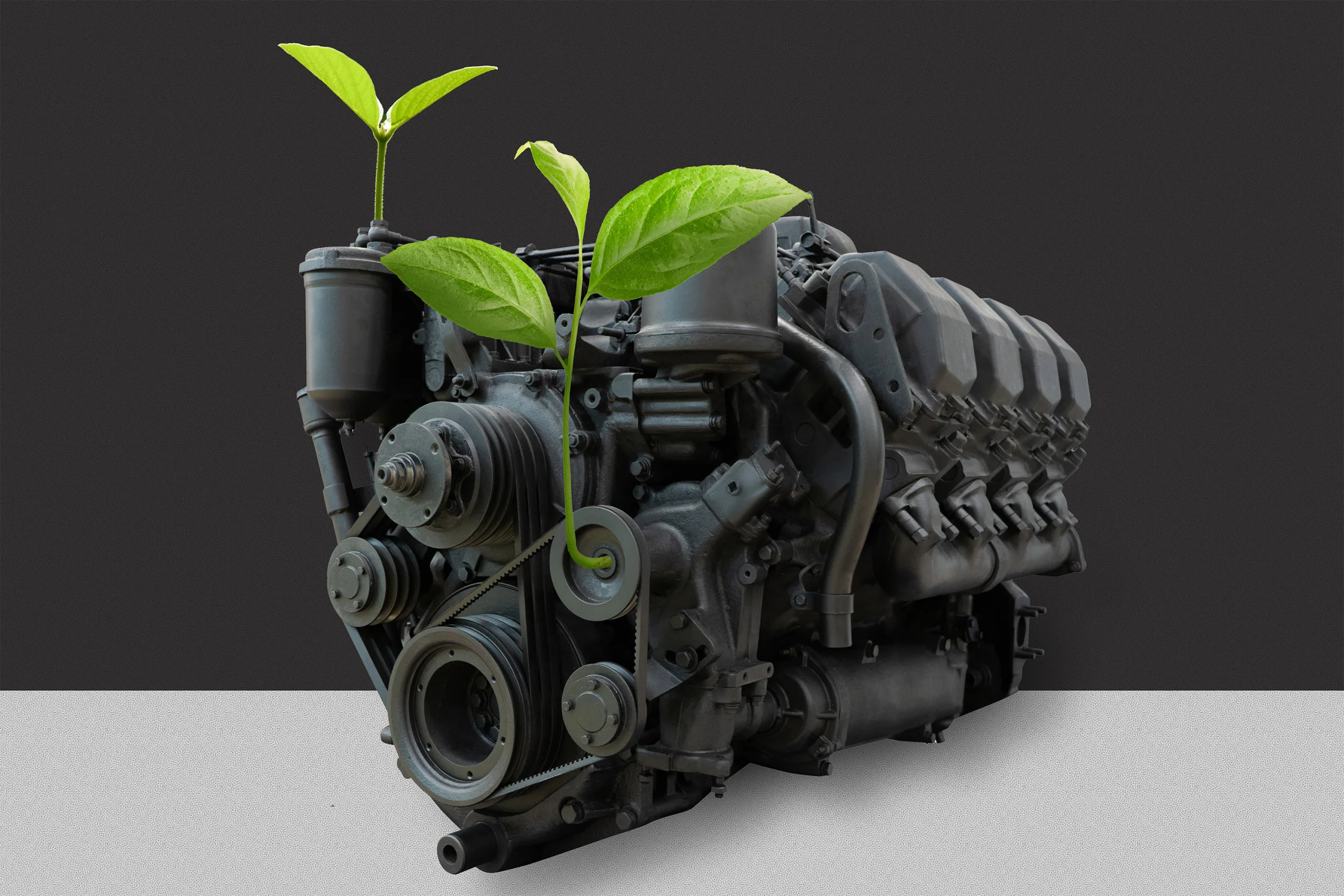The resurgence of manufacturing in the United States faces a significant hurdle: many current processes for producing essential materials generate harmful byproducts and present environmental challenges. This issue extends to widely used industrial metals such as nickel and titanium, as well as specialty materials utilized in batteries, advanced electronics, and defense sectors.
Enter 6K, a company launched by former MIT researcher Kamal Hadidi, which is pioneering a novel production technique aimed at revamping critical materials manufacturing in America without the associated toxic waste.
6K is actively scaling its microwave plasma technology, known as UniMelt, to revolutionize the processing of critical minerals while establishing new domestic supply chains. This innovative approach employs tightly controlled thermal plasma beams to melt or vaporize precursor materials into precisely sized particles with specific crystalline structures.
The technology converts metals such as titanium, nickel, and refractory alloys into particles fine-tuned for additive manufacturing, catering to a variety of industrial needs. It’s also being harnessed to develop battery materials vital for electric vehicles, grid infrastructure, and data centers.
“The markets we target are crucial not only for economic factors but for U.S. national security as well, given that most of these materials are currently sourced from unfriendly countries,” says 6K CEO Saurabh Ullal. “Our technology, which originated at MIT, allows the U.S. government and our expanding customer base to reduce reliance on these sources, granting greater autonomy in supply chains now and in the future.”
6K, named after the impressive 6,000-degree temperature of its plasma, is now supplying premium metal powders to manufacturers in sectors such as defense, automotive, medical, and oil and gas. These materials are utilized in a range of applications from engine components and medical implants to aerospace technologies. To accelerate its battery materials division, 6K is constructing a new 100,000-square-foot production facility in Jackson, Tennessee, set to break ground later this year.
A Weekend Project
From 1994 to 2007, Hadidi honed his skills at the Plasma Science and Fusion Center (PSFC), where he explored plasma technologies for varied applications, including hydrogen production and environmental toxin detection. His entrepreneurial journey began in 2000, establishing a company to improve mercury detection in smokestacks of coal-fired power plants.
“MIT was an amazing environment for me,” Hadidi recalls. “It constantly challenges you, and the collaborative spirit fosters innovative solutions across diverse fields.”
During his tenure, Hadidi began experimenting with high-frequency microwave plasmas to synthesize nanomaterials for optical use. Teaming up with Professor Eric Jordan from the University of Connecticut, they dedicated time after hours to refine their innovative idea, eventually securing a patent for the technology.
In 2007, Hadidi officially launched Amastan, applying his microwave plasma technology, which later evolved into the UniMelt process, aimed at fabricating a wide range of materials as part of a government grant initiative.
The potential of the microwave plasma technology quickly became evident, offering several advantages over traditional manufacturing methods. It streamlines production by eliminating several energy-intensive steps, reducing manufacturing times from days to mere hours in some instances. Additionally, UniMelt is compatible with recycled feedstocks for batteries and critical minerals. The company rebranded to 6K in 2019.
Early on, 6K produced metal powders suitable for additive manufacturing via a technique called spheroidization, resulting in dense, spherical powders that facilitate the production of high-performance 3D-printed components.
With further funding, Hadidi investigated creating a battery cathode composed of lithium, nickel, manganese, and cobalt (NMC). Traditional methods for producing NMCs involve complex chemical synthesis, precipitation, heat treatment, and significant water usage. 6K’s advancements drastically simplify this process, enhancing speed and cost-effectiveness while also prioritizing sustainability.
“Our technology eliminates toxic waste while recycling all byproducts, including water, back through the process,” Ullal emphasizes.
Scaling Domestic Production
Currently, 6K’s additive manufacturing division operates from a facility in Pennsylvania, capable of producing around 400 tons of various materials annually. Their critical minerals processing and recycling systems enable the fabrication of over a dozen metal powders. Additionally, a 33,000-square-foot battery facility is located in North Andover, Massachusetts, where battery cathode materials are produced for energy storage and mobility clients.
The upcoming Tennessee facility will significantly boost output, with expectations to produce 13,000 tons of battery cathode materials per year once construction concludes next year.
“If what I’ve initiated leads to positive societal impacts, I’ll feel fulfilled, and I’m immensely grateful to everyone who has supported me,” Hadidi, who departed from the company in 2019, expresses. “I’m inherently an entrepreneur, driven to innovate. Witnessing this project create meaningful change is deeply rewarding.”
The team at 6K envisions their technology streamlining the creation of various specialty ceramics, advanced coatings, and nanoengineered materials. They are also exploring options to eliminate PFAS, known as “forever chemicals,” though this initiative is still in its infancy.
The company has recently secured a grant to recycle critical materials from military depots, transforming them into aerospace and defense products—creating a new recycling stream for materials that might otherwise degrade or end up in landfills. This endeavor resonates with their philosophy: “We take nothing from the ground and put nothing into the ground.”
In a bid to further amplify capacity, 6K’s additive manufacturing division has received a $23.4 Defense Production Act grant. “This funding will enable us to enhance our processing capabilities in the coming three years,” Ullal states. “Our next goal is to scale battery materials production into the tens of thousands of tons per year. This is simply an expansion of established processes, demanding execution. Developing a circular economy aligns with our mission, addressing U.S. national security and environmental stewardship simultaneously.”
Photo credit & article inspired by: Massachusetts Institute of Technology



